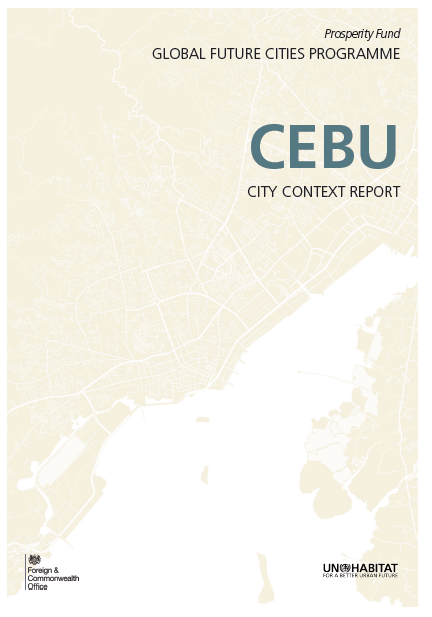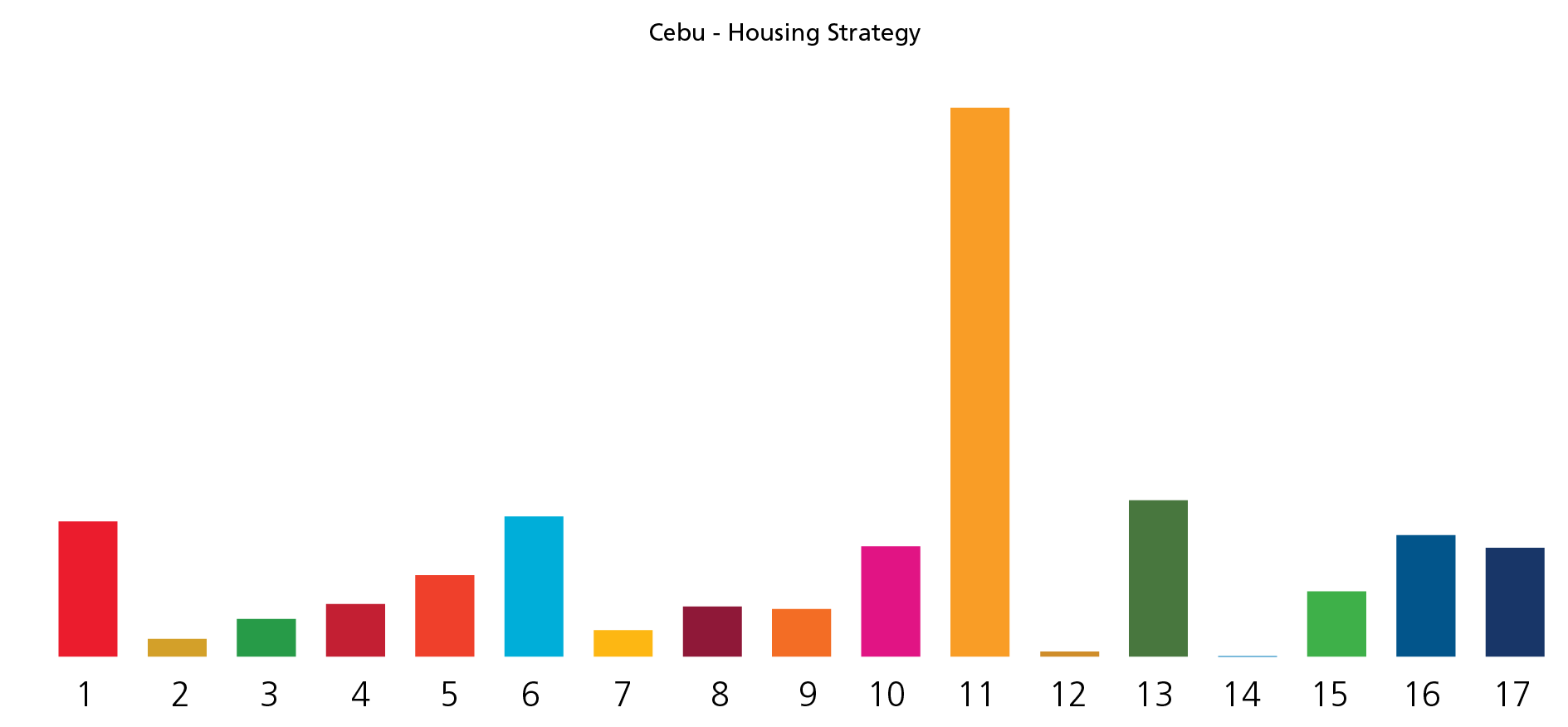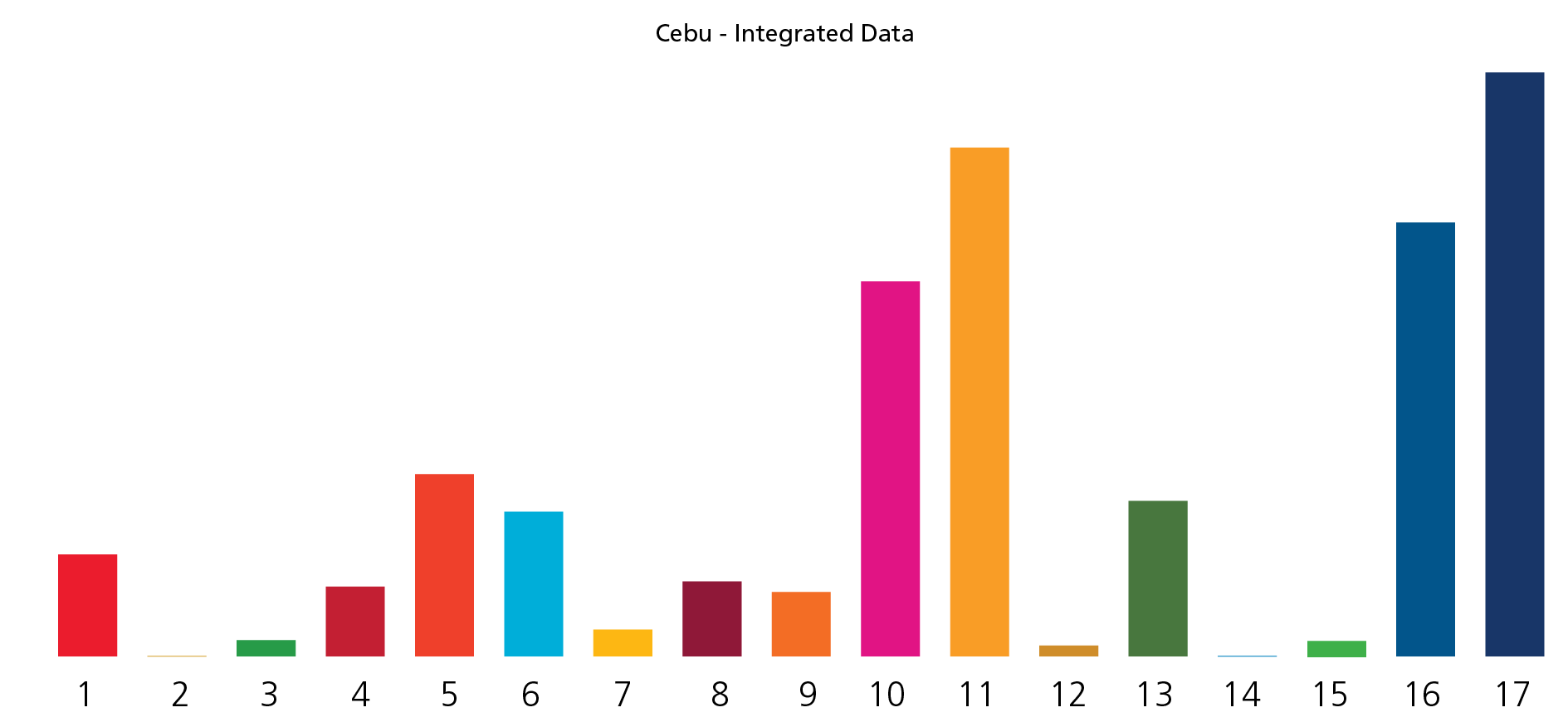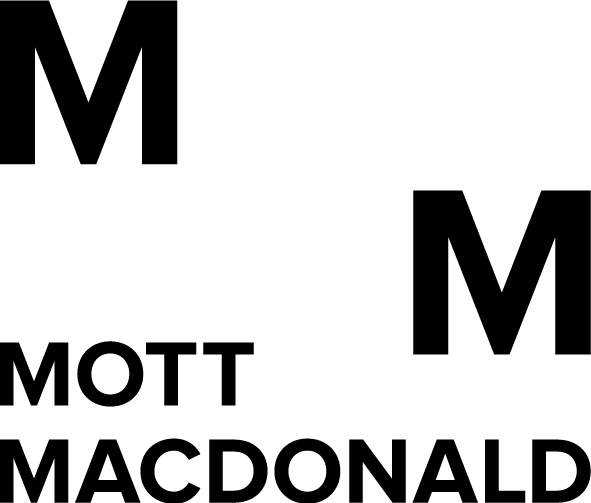Overview
Cebu City is the regional, financial and administrative capital of the Central Visayas Region with a population of 900,000 and it is the second-biggest growth area in the Philippines after Manila. It is located within a larger metropolitan area that has experienced a rapid population growth in the last decades, increasing from 1.5 million in 1990 to 2.8 million in 2015. Development stretches along the coast due to a mountainous topography and high vulnerability risk that restricts viable land allocation for urban expansion. This was not matched with a corresponding development of services and businesses in the other municipalities of Metro Cebu, resulting in the creation of a monocentric urban system concentrated in the city of Cebu. This, combined with a lack of efficient land use, a lack of public transport and insufficient development of the road network, has led to traffic congestion plus high pressure on service delivery and housing provision. Unsustainable urbanisation puts the economic performance of the city of Cebu at risk, exposing it to the enhancement of negative externalities that increase the costs of traffic congestion, pollution, social and spatial segregation and environmental risks.
A difficult metropolitan governance and the lack of planning tools in the city do not offer the adequate instruments for long-term sustainable urban planning. This adds to a lack of data availability, as well as lack of data management and analysis that does not allow suitable evidence-based planning in the city. The city of Cebu wants to reverse this trend and improve its strategies and urban planning mechanisms to promote sustainable urban development for the urban expansion that is forecasted for the upcoming decade, due to continuous migration and population growth. In this sense, the GFCP supports the development of a City Strategy for Cebu City in order to enhance spatial- and evidence-based planning for sustainable development and concretely advance the implementation of the Sustainable Development Goals by promoting sustainable modes of transport, resilience to risk disasters, public space and affordable housing. In addition, to support evidence-based planning and the gathering and analysis of relevant data for planning a Data Hub will be developed.
Highlighted Publication

Cebu City Context Report
Download Document
Challenges
Projects
1 Cebu Housing strategy
View DetailsCurrently, the city of Cebu does not have a strategy that guides housing development to cover the housing demand. This leads to 6% of Cebu's residents living in informal settlements. Urban development in Cebu has been fragmented and inefficient which exacerbates negative externalities of urbanization including traffic congestion and coastal erosion. The Housing Strategy aims to address these issues by providing a comprehensive strategic vision on how the City of Cebu could use different instruments to meet the housing demand and thereby improve the housing conditions of informal settlements. Through a participatory stakeholder engagement and an evidence-based diagnosis and context assessment, a vision for a more connected, mixed use, compact and inclusive urban form will be developed.
Project Timeline
-
Charrette
August 2018 -
Validation Workshop
November 2018 -
MoU signing
January 2020 -
Kick-off Meetings
January 2019 -
SDG Project Assessment Tool Tailoring Workshop
January 2020
SDG TOOL

2 Data Hub
View DetailsThere is a lack of data availability in Cebu City that hinders the development of solid and evidence-based strategies and plans. The Global Future Cities Programme aims to support the development of a data centre that enables the use of data across city departments and enhances evidence-based planning in the city as a whole. Based on assessment of existing data gaps and inefficiencies, the intervention aims to provide a strategy to improve current data collection, management, analysis and use. This means an improvement of the existing data inventory, data architecture and governance system, including the establishment of data sharing protocols, quality assessment, custodianship guidelines and city engagement strategy. In addition, capacity building activities will train the relevant teams in the management and use of the data hub.
Project Timeline
-
Charrette
August 2018 -
Validation Workshop
November 2018 -
MoU signing
January 2020 -
Kick-off Meetings
November 2019 -
SDG Project Assessment Tool Tailoring Workshop
October 2020
SDG TOOL

